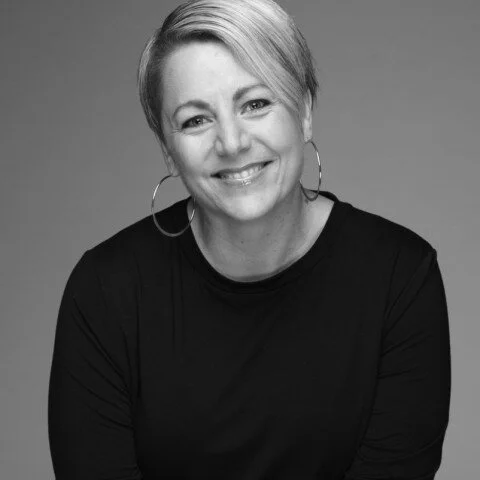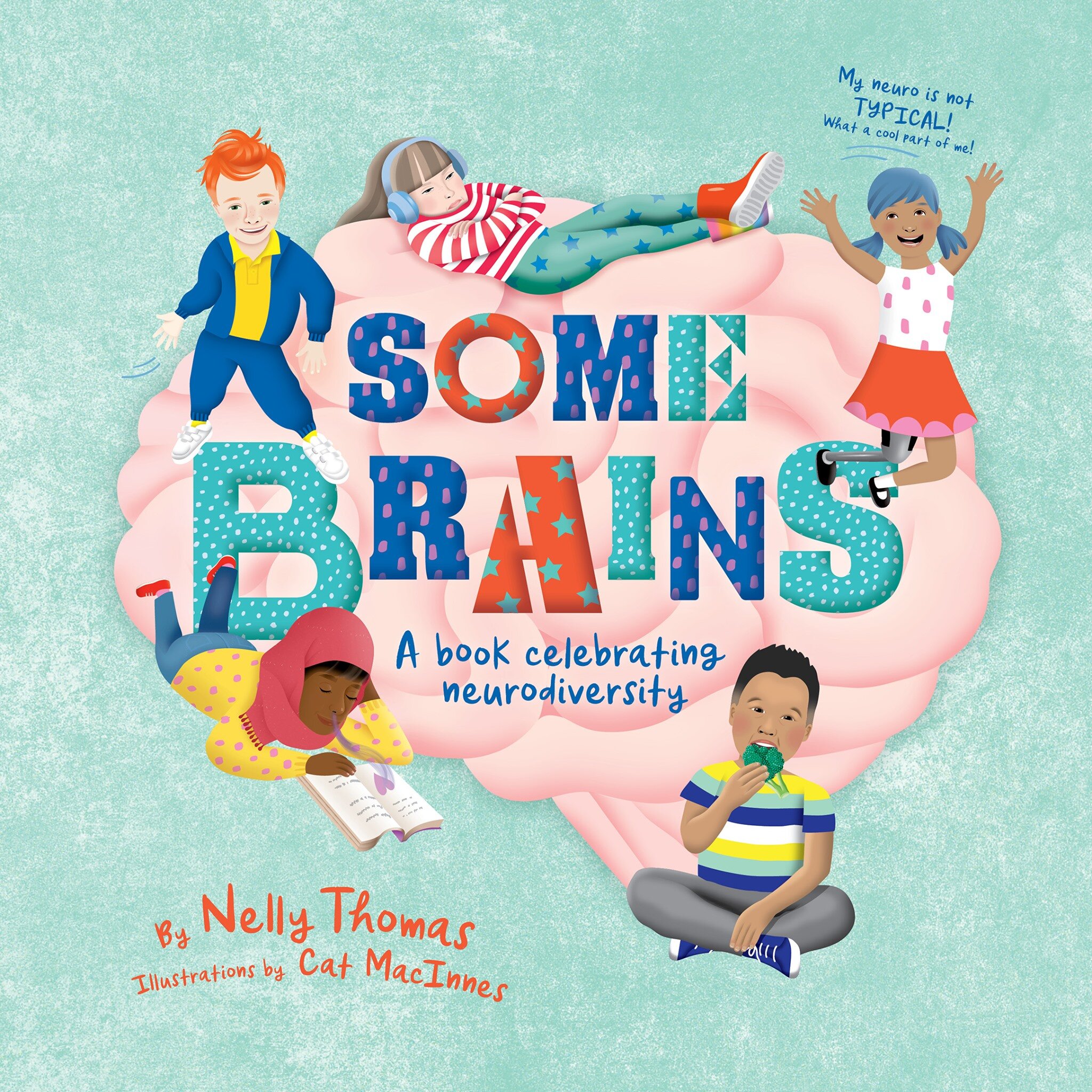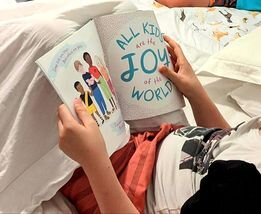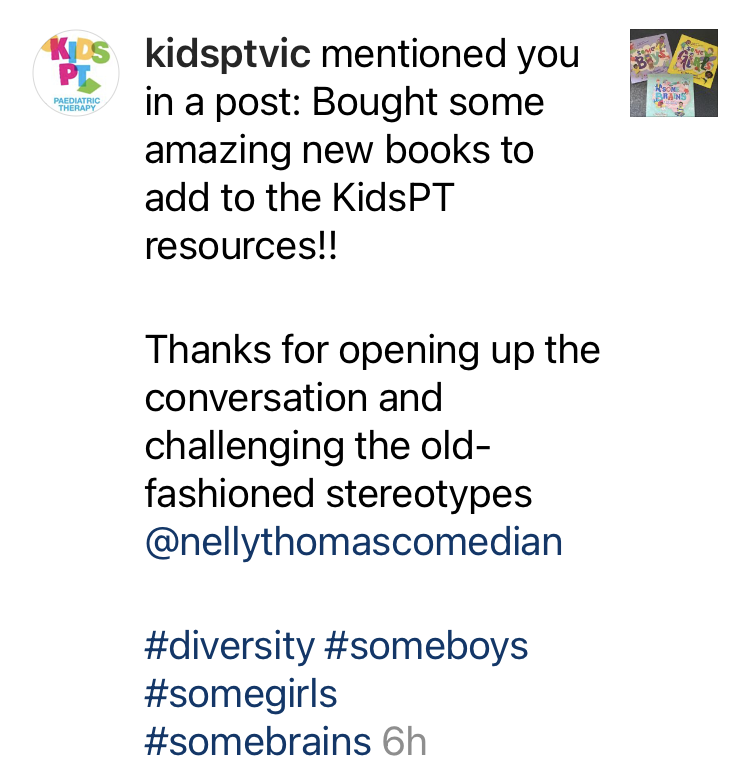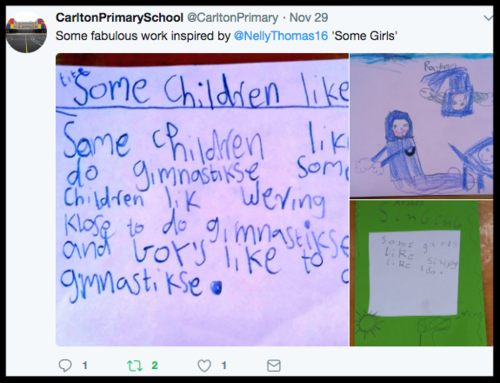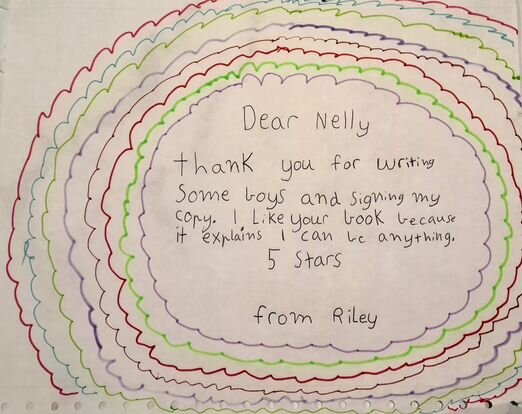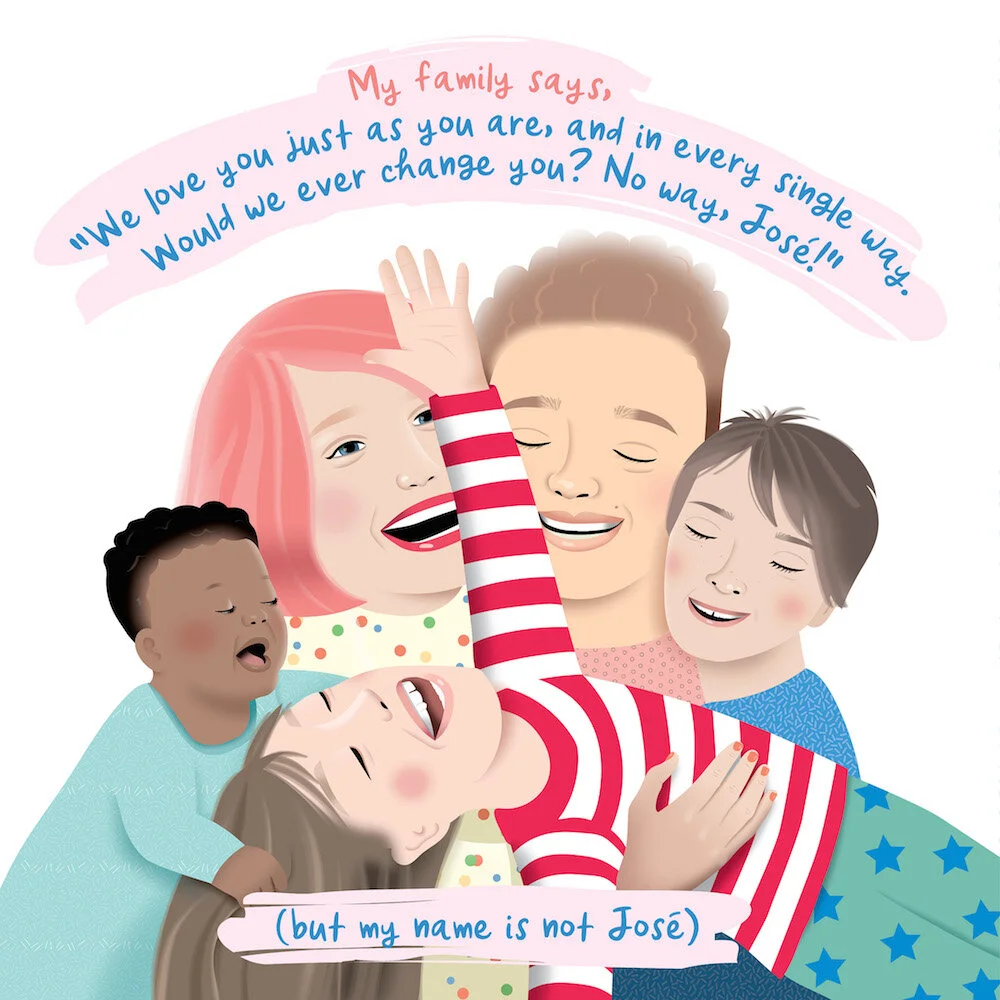“THE BEST MESSAGE YOU CAN GET OUT THERE IS THAT BRAINS ARE LIKE FINGERPRINTS – UNIQUELY YOURS. ALL BRAINS WILL HAVE STRENGTHS AND CHALLENGES. THAT DIVERSITY IS WHAT MAKES HUMANS WONDERFUL.”
Nelly Thomas is a writer, author, comedian and storyteller- often appearing on the ABC, on local Melbourne radio and as a speaker and MC about town.
Nelly is the mother of two young children and has written a number of children’s books that have made a big impact on her young readership- making them feel seen, heard and most importantly of all, like they belong. Nelly’s books encourage children to be themselves and be proud of who they are and what they like. In turn, these words, accompanied by the fun and engaging illustrations by Sarah Dunk and Cat MacInnes, have also brought much needed understanding and comfort to parents, carers, teachers and those among us who are wanting a little reassurance, kindness and celebration of individuality- with a sprinkling of humour for good measure.
Nelly has a new book out, Some Brains- a Book Celebrating Neurodiversity. Nelly wrote this story for her daughter but for many, it has felt like a story written for them. Nelly’s books encourage children to embrace the unique aspects of who they are, strengthening kind self-talk in childhood, with hope that this positivity will be carried long into adulthood. Read our full interview with Nelly below.
Q&A with Nelly
We have all been through a great deal of change over the last 16 months with extended lockdowns in Victoria. What is it about books and the shared experience of storytime that helps children to feel connected, supported and safe?
I think it mirrors the experience we all used to have with old-school TV – it’s a real-time, shared experience that fosters community connection. When you know that other people are sitting down at the same time as you, watching the same thing, experiencing the same event, it feels incomparable to watching a recording. Humans are wired for shared experiences.
Penny Wong with Nelly’s book, Some Girls.
How important is it for children to be told a range of different stories, featuring a diverse array of topics, themes, preferences and differences?
It’s important for all humans to understand people different from themselves which, ironically, tends to lead to the conclusion as you get older that we’re all basically the same! I’m always surprised when journalists are shocked by the diversity in my books – they simply mirror the world. Many of the people in my books are literally kids and adults I know. I am just reflecting the community. The more interesting question is why other books don’t!
Penny Wong with Nelly’s Book, Some Girls.
Two of your books celebrate who we are and encouraging children to be whoever they want to be. What inspired you to write Some Girls and Some Boys? What positive change did you hope it would make in the lives of young children?
The basic idea is that very rigid gender stereotypes about boys and girls are old fashioned and harmful. They don’t reflect reality – some boys do like dolls and some girls do like trucks – and they also actively harm us. Research shows that there’s a direct link between enforcing very rigid gender roles and things like family violence and also, poor male mental health. These books are just an attempt to honour the natural diversity that already exists among kids and, to let them know there’s nothing at all wrong with them if they don’t fit into those tight gender boxes. Why? Hardly anyone does.
What kind of response have you had from children about Some Boys and Some Girls? What story has stayed with you?
So many! These books have been the joy of my career. I really wrote them for my own kids and honestly had no idea they’d have such a huge impact. The best stories are from the kids themselves – the little boy who likes Barbies and was able to tell his Nanna it was ok by showing her the book, or the little girl who wants short hair and whose teacher reads the book to the class when she comes in with her new haircut. And the 100s of messages from teachers, parents and early childhood educators who have used to book to start discussions with kids and even more interestingly, with parents – some of whom are far more “behind the times” than their kids.
Sometimes, we can shy away from topics that can be a little uncomfortable to discuss, especially with children. Do you hope that through stories we can make a positive change in people’s lives, by broadening the discussion and making all children feel loved and valued?
The more something is avoided, the larger is grows. I firmly believe all topics should be on the table and their power diminished. Or to put it another way, talking about hard stuff is normal and becomes much less hard the more you do it.
Some brains: a book celebrating neurodiversity. A wonderful book (for all ages!) How did this idea first sprout?
I love this book. It was “born” when my youngest daughter was diagnosed Autistic. I was looking for books for her that were positive and affirming about her brain and that showed kids with all kinds of disabilities in a positive light. I didn’t find any I was happy with. Even the ones that were trying to be positive about neurodiversity seemed bordering on patronising or infantalising. So I wrote it for her!
What was the most rewarding part of writing and sharing Some Brains?
The messages from kids. And their parents. I’ve never experienced such joy in my life. I get messages almost every day from parents telling me that they didn’t know how to tell their kids about their autism diagnosis; from psychologists saying they didn’t know how to tell parents etc etc.. The book introduces the idea of the diagnosis with a strengths-based approach. It honours the difficulties lots of autistic people face – tough time at school, sensory and social challenges – but never from the perspective that “that makes your brain wrong”. The gist is: with some help for you AND FOR OTHER PEOPLE (we need to learn too – not just the autistic people) these issues can be managed. The book also honours the profound beauty of neurodiversity – without it we would not have so much great art, science and the like.
Playgroup is about community, families connecting, friendships forming and learning through play. It is about finding that support network. How vital is it for parents and carers to be aware of neurodiversity and for positive messaging to be shared between families in this early childhood space?
It’s almost impossible that you DO NOT know someone who is autistic, ADHD, dyslexic or neurodiverse in some way. If you’re basing what you know on a “Rainman” model, you’ll cause harm. Simple as that. Expecting an Autistic kid to be able to do what Rainman can do is absurd. Expecting an Autistic kid to be able to do what neurotypical kids can do is unfair. Treating them like they are naughty or just need better discipline is gaslighting – of them and their carers. The best message you get out there is that brains are like fingerprints – uniquely yours. All brains will have strengths and challenges. That diversity is what makes humans wonderful.
The final thing I’d say is that it’s critical to listen to people who are autistic themselves about autism. The textbooks and even education and health professionals can have terribly outdated ideas of autism and neurodiversity; as can parents and carers of autistics kids. Like all groups you want to learn about – listen to them first.
Book here to join our online storytime session with Nelly
Article by Sinead Halliday
VISIT WWW.NELLYTHOMAS.COM

